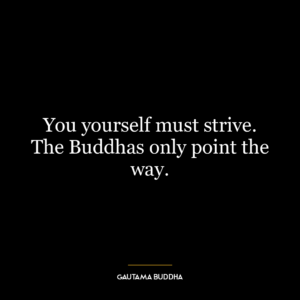This quote suggests that kindness should be the norm in our everyday life, rather than an occasional act. It advocates for a shift in mindset where kindness is not just a virtue but the default way we interact with the world around us. This means being compassionate, understanding, and supportive to others without expecting anything in return.
The depth of this quote can be further explored by considering what it means for kindness to be ‘natural’. The term implies an inherent or instinctive behavior that comes effortlessly and spontaneously. Therefore, when Buddha says kindness should become natural, he’s suggesting a transformation of our inner self so profound that acts of compassion and empathy become as reflexive as breathing.
In today’s world where there is often conflict, misunderstanding and selfishness, this idea becomes even more relevant. If everyone acted out of genuine kindness more frequently – whether it’s helping a stranger on the street or showing empathy towards colleagues – society would likely see less conflict and greater harmony.
On a personal level too, making kindness your natural way can lead to significant growth. It fosters positive relationships with others while also improving one’s own mental wellbeing; studies have shown that acts of altruism can boost happiness levels. By practicing habitual kindness you are also likely to develop other positive traits such as patience and generosity.
However, becoming naturally kind requires conscious effort initially – it involves consistently choosing empathy over judgment or anger until it becomes second nature. This could involve small steps like lending an ear to someone who needs to talk or larger actions such as volunteering for community service regularly.
Therefore this quote isn’t just about being kinder; it calls for embedding compassion into our core values so deeply that it permeates every aspect of our lives – from how we treat ourselves and others around us to how we view global issues like poverty or climate change.















